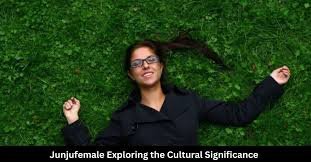Introduction
Language is a powerful tool that shapes cultural identity and historical memory. One phrase that has sparked significant controversy and discussion is utanmaz Türklere, which translates to “shameless Turks” in English. This phrase has been used in various contexts, often with negative connotations, to depict Turks in a derogatory manner. Understanding its historical roots, usage, and implications requires a deep dive into the complex interactions between the Turkish people and their neighbors, as well as the political and social dynamics that have influenced these relationships.
Historical Background
The phrase utanmaz Türklere is deeply rooted in the historical tensions between the Ottoman Empire and various European powers. During the height of the Ottoman Empire, which spanned from the 14th to the early 20th century, the Ottomans were a dominant force in the region, often clashing with European states. These conflicts, coupled with cultural and religious differences, fostered animosity and led to the development of derogatory terms and stereotypes.
One of the most notable periods of conflict was during the Crusades, where European Christian states launched military campaigns against Muslim territories, including those controlled by the Ottomans. These interactions often resulted in mutual disdain and the creation of pejorative phrases like utanmaz Türklere,reflecting the deep-seated hostilities and misunderstandings of the time.
Cultural and Social Implications
The use of the phrase utanmaz Türklere highlights the broader issue of how language can perpetuate stereotypes and reinforce negative perceptions. This phrase, like many others, contributes to a narrative that dehumanises and vilifies a particular group based on historical conflicts and cultural differences. It underscores the power of words in shaping societal attitudes and perpetuating cycles of prejudice and discrimination.
In contemporary times, the phrase continues to be a sensitive topic, especially in the context of rising nationalism and xenophobia. It serves as a reminder of the importance of addressing historical grievances and promoting mutual understanding and respect among different cultural and ethnic groups.
Modern-Day Repercussions
The legacy of phrases like utanmaz Türklere persists in modern discourse, often surfacing in political rhetoric and media representations. This can exacerbate existing tensions and hinder efforts towards reconciliation and cooperation. For instance, in regions with significant Turkish populations, such as parts of Europe, these derogatory terms can fuel xenophobic attitudes and discriminatory practices, impacting the daily lives of Turkish communities.
Moreover, the political climate in Turkey itself, marked by a strong sense of national pride and sensitivity to external criticism, can further complicate the issue. The use of such phrases by foreign entities can be perceived as an attack on national identity, leading to defensive responses and further entrenching divisions.
Efforts Towards Reconciliation
Despite the challenges, there are ongoing efforts to address the historical and cultural rifts that phrases like utanmaz Türklere exemplify. Educational initiatives aimed at fostering cross-cultural understanding, diplomatic dialogues, and community-based programs are some of the ways in which progress is being made.
For instance, intercultural exchange programs and joint historical research projects can help bridge the gap between conflicting narratives and promote a more nuanced understanding of shared histories. Additionally, promoting inclusive and respectful language in media and political discourse is crucial in combating the perpetuation of harmful stereotypes.
The Role of Education
Education plays a pivotal role in dismantling the prejudices embedded in phrases like utanmaz Türklere. By incorporating comprehensive and balanced historical accounts in school curricula, future generations can develop a more informed perspective on the past. This includes acknowledging the complexities of historical conflicts and the contributions of different cultures to global heritage.
Furthermore, fostering critical thinking and media literacy skills can empower individuals to question and challenge derogatory narratives and stereotypes. This is particularly important in an age where information is readily accessible and misinformation can spread rapidly.
The Power of Dialogue
Open and constructive dialogue is essential in addressing the underlying issues that give rise to derogatory phrases and stereotypes. Platforms that facilitate conversations between individuals from different cultural backgrounds can help build empathy and mutual respect. This can be achieved through various means, such as community forums, cultural festivals, and digital platforms that encourage interaction and exchange of ideas.
Moreover, dialogue at the diplomatic level can play a crucial role in resolving historical grievances and building a foundation for future cooperation. Engaging in honest discussions about past conflicts, while also highlighting common interests and goals, can pave the way for more harmonious relationships.
Media Responsibility
The media has a significant influence on public perceptions and attitudes. Responsible reporting and representation of different cultural and ethnic groups can help counteract the negative impact of phrases like utanmaz Türklere. This involves not only avoiding the use of derogatory terms but also actively promoting stories that highlight the positive contributions and experiences of Turkish individuals and communities.
Media organisations can also play a role in educating the public about the historical context and implications of such phrases, fostering a more informed and empathetic audience. By prioritising accuracy and sensitivity in their reporting, the media can contribute to a more inclusive and respectful society.
Conclusion
The phrase utanmaz Türklere serves as a poignant reminder of the power of language in shaping historical narratives and societal attitudes. Its historical roots in periods of conflict and its continued presence in modern discourse underscore the enduring impact of derogatory terms. Addressing the issues associated with such phrases requires a multifaceted approach, involving education, dialogue, and responsible media representation.
By fostering mutual understanding and respect, and by challenging stereotypes and prejudices, we can work towards a future where language is used to build bridges rather than perpetuate divisions. It is through these efforts that we can hope to overcome the legacy of phrases like utanmaz Türklere and move towards a more inclusive and harmonious global community.
Read more: Chancerne: Mastering Risk and Opportunity in Business and Life





